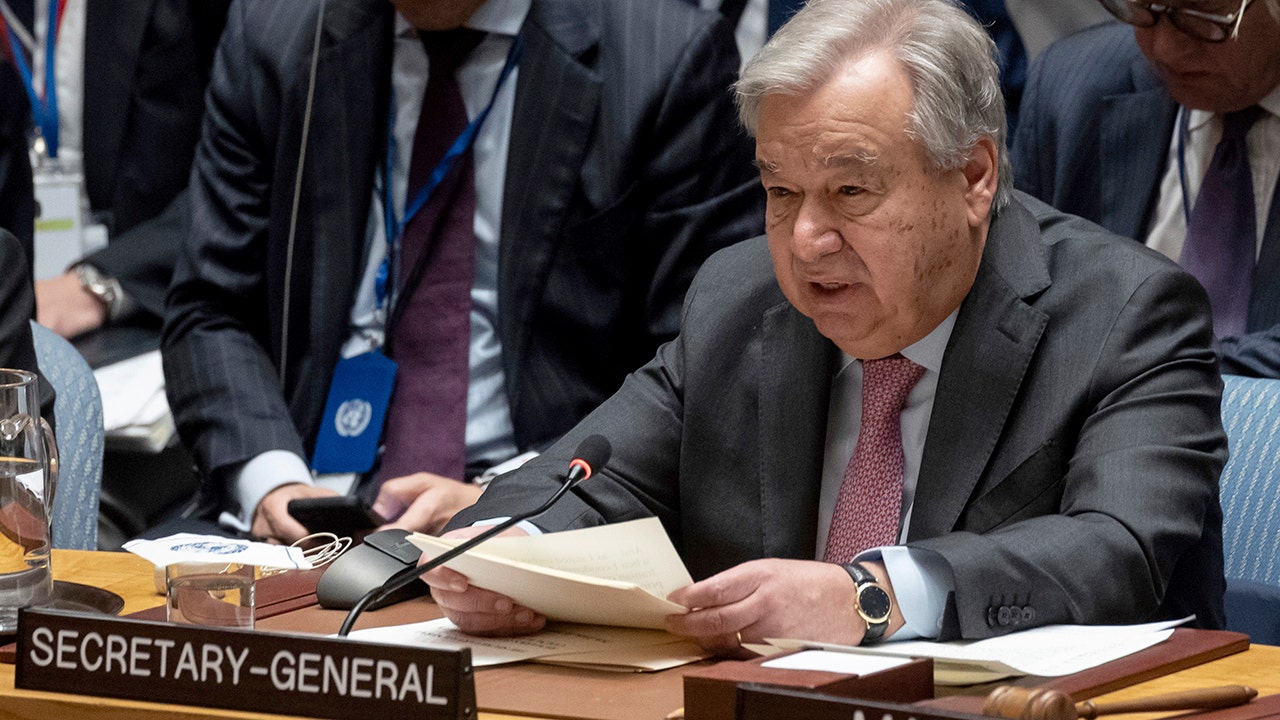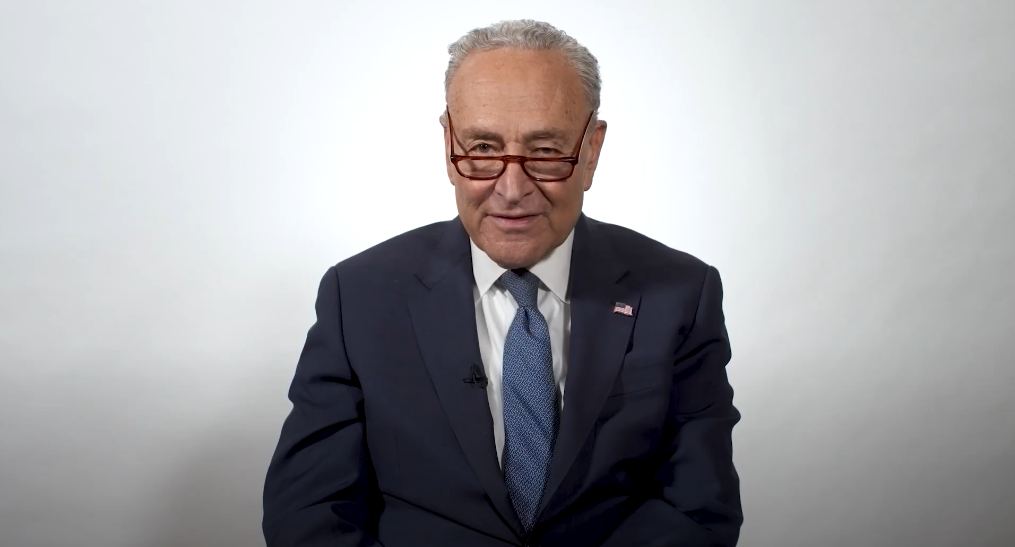The biggest lie of the modern church has become, “We can’t talk about politics in church.” Many modern pastors have taken the enemy’s bait-and-switch lie that we can’t address biblical issues because they’ve become politicized. Issues like abortion, transgenderism, sexuality, and marriage rarely get a mention from the pulpit because they’re too “political.”
But isn’t that the enemy lying to us? How are we supposed to be salt and light to a dark culture when we as Christians are not equipped for the battles at our own doorstep?
Simply put, the church has believed the lie that we cannot preach truth in love as it relates to our culture.
The church has not gotten more political. Rather, politics has gotten more religious. To say otherwise is a lie to silence Christians, whom God has commanded to speak up.
A Christian friend of mine recently told me she had no idea how to respond to her toddler who asked if the cashier was a “boy or girl.” Another Christian friend told me she believes it’s respectful to use someone’s preferred — yet biologically wrong — pronouns. “Ah, I don’t know what to say,” echoed another Christian friend who didn’t know how to respond to her young daughter who asked about a homosexual couple. And another friend of mine didn’t want to drive through a city’s streets during June because she was afraid her kids would see a rainbow flag and she wasn’t ready to address that topic.
This is just the tip of the iceberg.
How did we get here? And why has the church not equipped us to respond to these situations and questions related to what have become “controversial” issues of our day?
Simply put, the church has believed the lie that we cannot preach truth in love as it relates to our culture.
But I would argue this is a cowardly excuse by passive pastors who don’t want to address cultural issues for the sake of rocking the boat, “offending” the flock, or, heaven forbid, losing church members, though I’m convinced they’d gain more.
I’m here to tell you: Jesus called us to be “salt and light” in a dark age, and we must not shy away from speaking truth in love. We must equip Christians on how to raise children and talk about every cultural issue through a biblical lens.
My friend Nate Grasz said it well: “Choosing to do what’s popular is political. Choosing to do what’s right is biblical.”
Jesus was no stranger to conflict. He flipped tables with righteous anger, driving out those buying and selling in the house of God. He used strong language when he called the Pharisees a “brood of vipers,” which was a serious rebuke. Jesus shared the gospel and convicted people of their sin — but he didn’t leave them in it. Meat offered to idols was an extremely controversial issue, and he didn’t shy away from addressing that issue, either.
He said to the adulterous woman in John 8 after the scribes and the Pharisees were eager to stone her to death for her sinful lifestyle, “Go, and from now on sin no more.” Jesus began a conversation with the woman at the well even though, culturally speaking, a Jewish man talking with a Samaritan — let alone a Samaritan woman — was extremely controversial. She was living with another man who wasn’t her husband, yet Jesus didn’t skirt around the topic, and he certainly didn’t condemn her. He told her about the true living water by speaking the truth in love.
And so should we.
We see examples all throughout the Bible of courageous men and women involved in their culture and in government — using them in influential ways.
Today’s threats to the family and the church are not ‘on the horizon’ — they are approaching the gate and coming inside.
Risking her life and reputation, Esther boldly went before King Xerxes, pleading with him to save her people from Haman, who was slated to execute the Jews. Joseph went from being a prisoner to second in command of the powerful nation of Egypt, saving the population from famine. Daniel rose to political power, influencing the kings of his day and interpreting dreams. Rahab put her life on the line to save God’s servants. The many prophets of old boldly confronted kings and their sin.
When the Hebrew midwives Shiphrah and Puah were instructed to kill all Hebrew newborn boys, they defied Pharaoh’s orders and instead saved the babies. God’s law always supersedes man’s laws. We must always fight to preserve the most innocent among us, especially the most defenseless in the womb.
So why is it that the majority of American churches dare not touch the topics of life or other moral pressing issues? God has clearly called us to do so.
Gary Hamrick, pastor of Cornerstone Chapel in Leesburg, Virginia, preached a recent Election Day sermon full of conviction and truth. He said, “The culture has hijacked the narrative on social and moral issues that the Bible has already addressed. And then the culture has twisted those things, distorted and perverted those social and moral issues into political issues. And then told pastors like me and Christians like you to stop being so political.”
Hamrick also pointed out that God had the first word on all moral issues before they were ever “political.” The Bible speaks to national borders, immigration, economics, life, justice, prosperity, biological sex, marriage, parental authority, Israel, and even the environment.
Our country is in jeopardy, and we are morally trending downward.
‘Silence in the face of evil is itself evil: God will not hold us guiltless. Not to speak is to speak. Not to act is to act.’
In biblical times, watchmen were placed at the tops of city walls to watch for impending threats in the distance. When a threat was spotted, it was the duty of the watchman to warn the citizens below by blowing the trumpet.
Today’s threats to the family and the church are not “on the horizon” — they are approaching the gate and coming inside. The time to speak and act is now.
Pastors and Christians alike should blow the trumpet on the fact that children are being mutilated, babies are being slaughtered, and children are being bought and paid for and shipped overseas. And all these things are legal in numerous states. God tells us to fight for justice and righteousness. Therefore, we have a moral obligation to get involved, speak truth in love, and be salt and light. We are his ambassadors, after all, and ambassadors don’t sit on the sidelines being silent about moral issues. It’s our right and our duty to vote and be engaged in our country’s decisions and active in our churches.
Though slavery was a highly contentious issue, British politician William Wilberforce courageously led the charge to end the horrors of the slave trade in England. His moral and religious beliefs ignited him to stand up to the most powerful in Parliament in order to stop grave evil. He said, “Let it not be said that I was silent when they needed me.”
Dietrich Bonhoeffer, the well-known German Lutheran pastor and theologian who implored Christians to stand up against the Nazi regime’s actions, wisely said, “Silence in the face of evil is itself evil: God will not hold us guiltless. Not to speak is to speak. Not to act is to act.”
Let it not be said of us that we lived by lies and in fear, but rather that we lived by truth, took action, and refused to remain silent.
Read the full article here




![Luxury Yacht Explodes In Flames, 1,000 Rounds Of Ammo And Fireworks Onboard [WATCH] Luxury Yacht Explodes In Flames, 1,000 Rounds Of Ammo And Fireworks Onboard [WATCH]](https://www.rvmnews.com/wp-content/uploads/2024/09/2024.09.22-09.49-rvmnews-66efe82feb940.jpg)



![David Muir’s Vanity Takes Center Stage as California Wildfires Rage, Immediate Backlash [WATCH] David Muir’s Vanity Takes Center Stage as California Wildfires Rage, Immediate Backlash [WATCH]](https://www.lifezette.com/wp-content/uploads/2024/09/2024.09.17-07.20-lifezette-66e9d684b6682.jpg)

